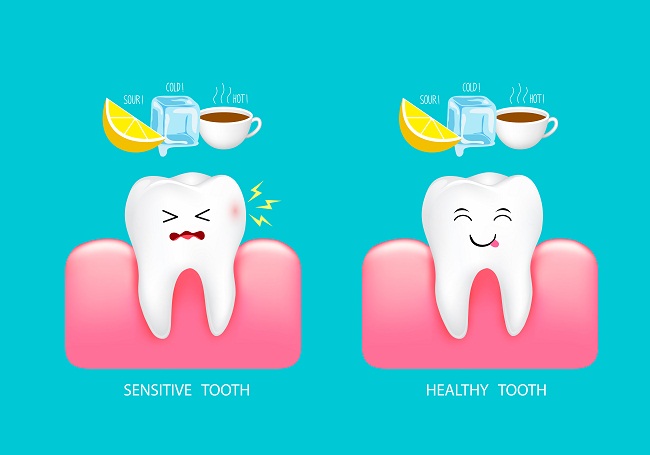Tooth sensitivity is a widespread issue that can turn the simple pleasures of enjoying a hot coffee or a cold ice cream into painful experiences. Many people suffer from this discomfort, and understanding its causes and remedies is crucial for maintaining good oral health. In this blog, we’ll delve into the root causes of tooth sensitivity and provide practical home remedies to alleviate it, based on insights from a popular YouTube video by a dental expert.
What is Tooth Sensitivity?
Tooth sensitivity, also known as dentin hypersensitivity, occurs when the protective enamel on your teeth wears down, exposing the underlying dentin. This can cause sharp pain when consuming hot, cold, sweet, or acidic foods and drinks.

Common Causes of Tooth Sensitivity
- Aggressive Tooth BrushingBrushing your teeth too hard or using a toothbrush with hard bristles can wear down the enamel and expose the dentin. This not only leads to sensitivity but can also cause gum recession, which further exacerbates the problem.
- Bruxism (Teeth Grinding)Grinding or clenching your teeth, often unconsciously and especially at night, can wear down the enamel. Over time, this constant pressure makes your teeth more sensitive.
- Acidic Foods and DrinksA diet high in acidic foods and beverages, such as citrus fruits, sodas, and vinegar-based dressings, can erode your enamel. This erosion exposes the sensitive dentin and increases the likelihood of sensitivity.
- Tooth DecayCavities and tooth decay can expose the inner layers of your teeth, leading to increased sensitivity. Initially, tooth decay might be painless, but it can become a significant problem if left untreated.
- Gum RecessionWhen your gums recede, they expose the roots of your teeth, which are more sensitive than the enamel-covered crown. This can be caused by factors such as gum disease or aggressive brushing.
Home Remedies for Tooth Sensitivity
- Use Desensitizing ToothpasteDesensitizing toothpaste is specially formulated to help block the exposed dentin and relieve sensitivity. Using it regularly can significantly reduce discomfort. For instant relief, you can also apply the toothpaste directly onto your sensitive teeth.
- Avoid Rinsing After BrushingAfter using desensitizing toothpaste, do not rinse your mouth. Spitting out the excess toothpaste is sufficient, as the active ingredients need to remain on your teeth to be effective.
- Switch to a Soft-Bristled ToothbrushUsing a toothbrush with soft bristles and brushing gently can prevent further enamel erosion and reduce sensitivity.
- Use Fluoride MouthwashFluoride helps strengthen enamel and can block exposed tubules, reducing sensitivity. Incorporate a fluoride mouthwash into your daily oral care routine for added protection.
- Avoid Acidic and Sugary FoodsLimit your intake of acidic and sugary foods and drinks to prevent further enamel erosion. Rinsing your mouth with water after consuming such items can help neutralize the acid and reduce its impact on your teeth.
When to See a Dentist
While these home remedies can provide relief, it’s important to consult a dentist if your tooth sensitivity persists or worsens. A professional evaluation can determine if there are underlying issues, such as advanced tooth decay or gum disease, that require treatment.
Tooth sensitivity is a common but manageable condition. By understanding its causes and implementing these home remedies, you can alleviate discomfort and protect your teeth. However, never hesitate to seek professional dental advice if your symptoms persist. Maintaining good oral hygiene and being mindful of your habits can go a long way in preventing and treating tooth sensitivity.
Thank you for reading, and we hope these insights help you better understand and manage tooth sensitivity. Keep smiling, and stay tuned for more dental care tips!
